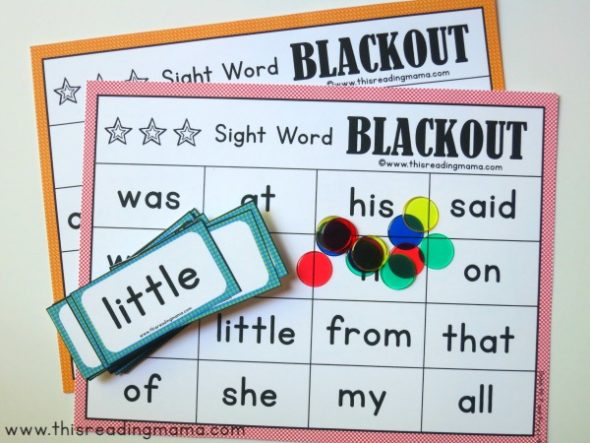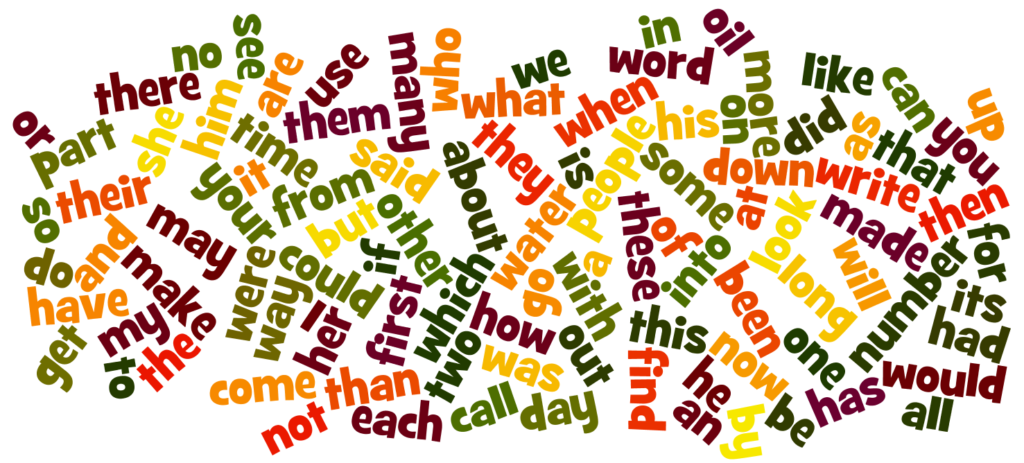
Encouraging Sight Word Development in All Ages
Easy ways to teach visual words to preschoolers
- What are visual words?
- Why is it important to teach visual words to preschoolers?
- A list of some common words for preschool children
- How to teach visual words to preschoolers – tips for parents
- Fun Sight Words Entertainment for preschool children
As a parent, you must teach your child to read and write. Pupils and kindergartens have to recognize visual words in order to read correctly. Looking at words helps children build a strong vocabulary. Children will also understand that reading is not only about saying words, but also knowing what those words mean.
What are visual words?
Visual words are common words that young children are encouraged to remember. These words are often used in everyday vocabulary, but they are not easy to understand with phonetics. This means that it is difficult to learn these words by their sounds alone. Some examples of spectacular words: you, this, see, look, I, big, small, he, she, and this. Read more information on this site https://argoprep.com/blog/encouraging-sight-word-development-in-all-ages/
Why is it important to teach visual words to preschoolers?
Here are a few reasons why it’s important to teach visual words to preschoolers:
- Creates a solid foundation for vocabulary…
When you teach young children to recognize words in their faces, it helps them build a solid foundation for good vocabulary. Visual words continue to be found in advanced books, and therefore the child will continue to use the visual word learning method to learn more complex words and expand their knowledge. - Gives them confidence
When a child recognizes a few words on a page, it increases her confidence, and she tries to read the whole text. Over 50% of English text consists of 100 opening words. Consequently, a child who has memorized these visual words, will be able to recognize most of the words in the sentence. This will give her confidence to read the whole page or even the whole book. - Gravitates the love of reading
When a child remembers visual words, he can instantly recognize them and understand their meaning. She will not have to constantly look for meaning in the dictionary, and therefore it will not interfere with reading. When a child gets better at something, he likes it better. So when she reads without interruption, she will enjoy it and eventually develop a love of reading.

List of some common words for preschool children
Normal words are usually listed between 50 and 100 words. The most commonly used visual word lists are called the Dolce list and the Fry list. The Fry list contains more modern words than the Dolce list. This has even been extended to capture the 1000 most common words in English texts.
- The first 100 words on Fry’s list: time, they, their, what, than, there, they, these, then, this, you, your, your, way, way, was, used, to, two, to, which, who, were, what, will, write, will, with, when, words, we, long, look, do, many, have done, maybe more, mine, get, go, have, has, has, day, done, no, No, do, do, down, oh, all like, in, a, an, and, are, can, can, come, firstly, if, in, in, like, on, one, another, out, of, of, oil, or, have, he, she, she, see, she, so, some, said, sit, each, find, be, was, but, this, this, this, now, number, he, his, part, people like, of, I, of.
- Dolch Sight Words: big, blue, and, away, go, help, not, one, to, two, we, where, yellow, you, can, come, for, funny, to, this, I, down, find, run, said, play, red, three, a little, look, I, mine, see up, here, do.
A memory game
Write down each mysterious word on two cards and draw a small picture on it for the child to have more fun. Put the cards face down to hide the words. Now ask your child to choose two cards so that they can find a match. If a match is found, take it out of the game and put it aside. If no match is found, turn the cards face down and ask your child to pick up the other card. The game continues until all visual words are found.
Learning visual words is important for preschoolers as it improves their vocabulary, reading skills and understanding. Try these fun activities mentioned in this article to help your child memorize the words of vision.
Learning these visual words will improve your child’s reading, writing and social skills. Congrats! You make your child’s word smart. But there are other “minds” – what are they? To find out, get him study sets. These tutorial kits sharpen his skills from adulthood and will support him happily ever after!